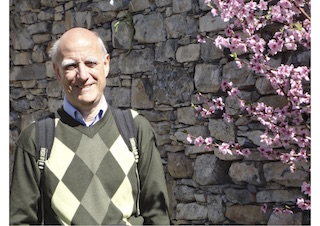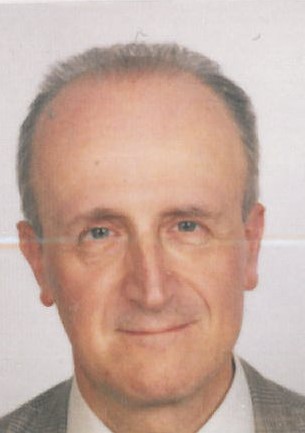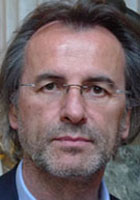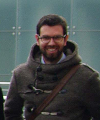Studying at the University of Verona
Here you can find information on the organisational aspects of the Programme, lecture timetables, learning activities and useful contact details for your time at the University, from enrolment to graduation.
Academic calendar
The academic calendar shows the deadlines and scheduled events that are relevant to students, teaching and technical-administrative staff of the University. Public holidays and University closures are also indicated. The academic year normally begins on 1 October each year and ends on 30 September of the following year.
Course calendar
The Academic Calendar sets out the degree programme lecture and exam timetables, as well as the relevant university closure dates..
| Period | From | To |
|---|---|---|
| Sem. IA | Oct 1, 2014 | Nov 16, 2014 |
| Sem. IB | Nov 17, 2014 | Jan 18, 2015 |
| Sem. IIA | Feb 23, 2015 | Apr 19, 2015 |
| Sem. IIB | Apr 20, 2015 | Jun 7, 2015 |
| Session | From | To |
|---|---|---|
| Sessione Estiva (Esami sospesi dal 14 al 16 luglio) | Jun 8, 2015 | Jul 31, 2015 |
| Sessione Autunnale | Sep 1, 2015 | Sep 30, 2015 |
| Sessione Invernale | Jan 18, 2016 | Feb 21, 2016 |
| Session | From | To |
|---|---|---|
| Sessione Estiva | Jul 14, 2015 | Jul 16, 2015 |
| Sessione Autunnale | Nov 10, 2015 | Nov 12, 2015 |
| Sessione Invernale | Mar 14, 2016 | Mar 17, 2016 |
| Period | From | To |
|---|---|---|
| Festa di Ognissanti | Nov 1, 2014 | Nov 1, 2014 |
| Festa dell'Immacolata Concezione | Dec 8, 2014 | Dec 8, 2014 |
| Vacanze Natalizie | Dec 22, 2014 | Jan 6, 2015 |
| Vacanze Pasquali | Apr 2, 2015 | Apr 7, 2015 |
| Festa della Liberazione | Apr 25, 2015 | Apr 25, 2015 |
| Festa dei lavoratori | May 1, 2015 | May 1, 2015 |
| Festa del S. Patrono S. Zeno | May 21, 2015 | May 21, 2015 |
| Festa della Repubblica | Jun 2, 2015 | Jun 2, 2015 |
| Vacanze Estive | Aug 10, 2015 | Aug 16, 2015 |
Exam calendar
Exam dates and rounds are managed by the relevant Humanistic Studies Teaching and Student Services Unit.
To view all the exam sessions available, please use the Exam dashboard on ESSE3.
If you forgot your login details or have problems logging in, please contact the relevant IT HelpDesk, or check the login details recovery web page.
Should you have any doubts or questions, please check the Enrollment FAQs
Academic staff
 alex.arcozzi@univr.it
alex.arcozzi@univr.it
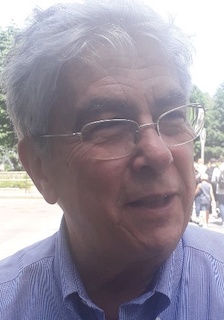
Avezzu' Guido
 guido.avezzu@univr.it
guido.avezzu@univr.it
 augusto.barbi@univr.it
augusto.barbi@univr.it
 alberto.cavarzere@univr.it
alberto.cavarzere@univr.it
 daniela.ceoletta@univr.it
daniela.ceoletta@univr.it

Chiecchi Giuseppe
 giuseppe.chiecchi@univr.it
giuseppe.chiecchi@univr.it
 +39 045802 8117
+39 045802 8117

Mastrocinque Attilio
 attilio.mastrocinque@univr.it
attilio.mastrocinque@univr.it
 +39 045802 8386
+39 045802 8386
 linda.napolitano@univr.it
linda.napolitano@univr.it
 carlotta.salettisalza@univr.it
carlotta.salettisalza@univr.it
 ivan.valbusa@univr.it
ivan.valbusa@univr.it
 lucia.vantini@univr.it
lucia.vantini@univr.it
 gianmaria.varanini@univr.it
gianmaria.varanini@univr.it
Study Plan
The Study Plan includes all modules, teaching and learning activities that each student will need to undertake during their time at the University.
Please select your Study Plan based on your enrollment year.
1° Year
| Modules | Credits | TAF | SSD |
|---|
Lingua straniera competenza linguistica liv. b1 (informatizzato)Un insegnamento a scelta2° Year activated in the A.Y. 2015/2016
| Modules | Credits | TAF | SSD |
|---|
Un insegnamento a scelta Uno o due insegnamenti a scelta per un totale di 12 cfuUn insegnamento a scelta per un totale di 6 cfuUn insegnamento a scelta3° Year activated in the A.Y. 2016/2017
| Modules | Credits | TAF | SSD |
|---|
Da due a quattro insegnamenti a scelta per un totale di 24 cfuUno o due insegnamenti a scelta per un totale di 12 cfu| Modules | Credits | TAF | SSD |
|---|
Lingua straniera competenza linguistica liv. b1 (informatizzato)Un insegnamento a scelta| Modules | Credits | TAF | SSD |
|---|
Un insegnamento a scelta Uno o due insegnamenti a scelta per un totale di 12 cfuUn insegnamento a scelta per un totale di 6 cfuUn insegnamento a scelta| Modules | Credits | TAF | SSD |
|---|
Da due a quattro insegnamenti a scelta per un totale di 24 cfuUno o due insegnamenti a scelta per un totale di 12 cfu| Modules | Credits | TAF | SSD |
|---|
Legend | Type of training activity (TTA)
TAF (Type of Educational Activity) All courses and activities are classified into different types of educational activities, indicated by a letter.
Aesthetics (p) (2015/2016)
Teaching code
4S01184
Teacher
Coordinator
Credits
6
Also offered in courses:
- Aesthetics (p) of the course Bachelor’s degree in Humanities
Language
Italian
Scientific Disciplinary Sector (SSD)
M-FIL/04 - AESTHETICS
Period
Sem. IA, Sem. IB
Learning outcomes
Profound examination and critical reflection on the relevant topics of aesthetics in general and on Hegel's Aesthetics in particular.
Didactical Methods:
The course is structured prevalently by frontal lessons and lectures from the texts; the major themes will be items for a discussion.
Program
Title:
«The death of art and the tragedy of living». Hegel’s aesthetics and modernity.
Contents:
The first part of the course deals with different relationships between mimesis and ratio focalizing on some of the fundamental passages in history (Plato, Aristotle, Descartes, Rationalism, Empirism, Baumgarten). Furthermore, even fundamental concepts of contemporary aesthetics, such as the sublime and the genius in their Kantian and Goethean form, will be examined. This will be followed by an analytical lecture of Hegel’s Aesthetics, which is a milestone of philosophical thought. The analysis will start with the principal categories of the tradition of aesthetics and arts. Afterwards some of the principal moments of Hegel’s aesthetics, above all the so called “End of art”, will be examined with the aim of individuating vital moments for the construction of a modern aesthetics, which might be able, at least partially, to give answers to the questions that characterize both the practice of arts and the reflection on it. Also the differences between the traditional version of Hegel’s aesthetics and the notes taken by his students during his Berlin lessons (only recently published) will be taken into account.
Examination Methods
The exam consists in an oral discussion with the teacher.
Type D and Type F activities
Modules not yet included
Career prospects
Module/Programme news
News for students
There you will find information, resources and services useful during your time at the University (Student’s exam record, your study plan on ESSE3, Distance Learning courses, university email account, office forms, administrative procedures, etc.). You can log into MyUnivr with your GIA login details: only in this way will you be able to receive notification of all the notices from your teachers and your secretariat via email and also via the Univr app.
Student mentoring
Linguistic training CLA
Gestione carriere
Practical information for students
Documents
| Title | Info File |
|---|---|
|
|
pdf, it, 325 KB, 16/07/24 |
|
|
pdf, it, 212 KB, 02/05/23 |
|
|
pdf, it, 131 KB, 02/05/23 |
Graduation
Documents
| Title | Info File |
|---|---|
|
|
pdf, it, 109 KB, 12/07/24 |
|
|
pdf, it, 112 KB, 14/05/24 |


